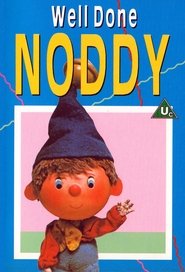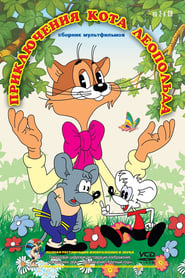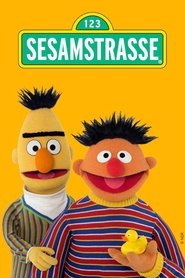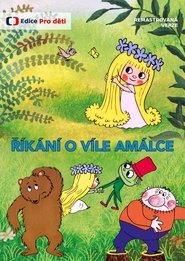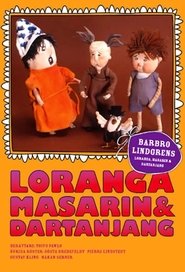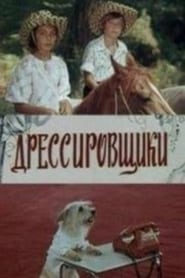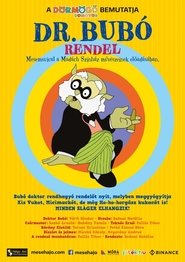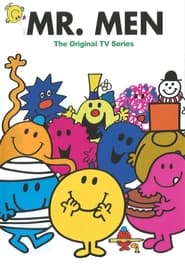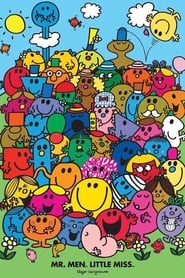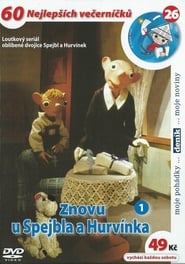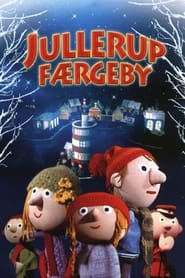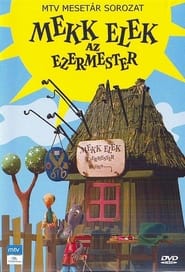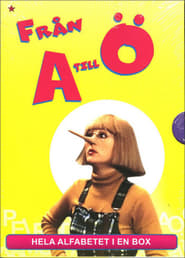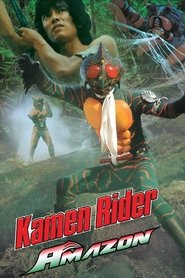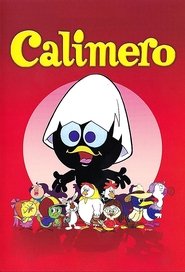New Kids TV Series - Page 322
-
Noddy
1975
Noddy
1975
star 6Based on popular children's book 'Noddy' by Enid Blyton. Noddy was brought to the screen in 1975 by the production partnership of Brian Cosgrove and Mark Hall with their company Stop Frame Productions. They also produced another version of Noddy in the 1990s. Richard Briers voices all the characters. -
Leopold the Cat
1975
Leopold the Cat
1975
star 6.8Leopold the Cat is a Soviet/Russian animation series about the pacifistic, and intelligent cat, Leopold. Leopold always wears a bow tie even when swimming. He is always confronted by two mischievous mice, Grey and White. It was filmed by T/O Ekran in 1975 - 1987 and its runtime is 87 min. As of 1987, there were 11 episodes in total. Eventually, in 1995, most of the episodes were released on DVD. It was directed by Anatoly Reznikov, and the screenplay was written by Arkady Hayt. Boris Savelyev wrote the score. The cinematography was by Ernst Gaman, Igor Shkamarda, and Vladimir Milovanov. Nelli Kudrina did the sound. His catchphrase is - "Let's live in friendship, guys". The catchphrases of the mice are "Come out, Leopold!" by one and "Come out, you foul coward!" by the second. -
Sesamstraße
1975
Sesamstraße
1975
star 5.3Sesamstraße is the German-language version of Sesame Street, a children's television series. It airs primarily in Germany and the surrounding German-speaking countries. The show premièred on 8 January 1973, Sesamstraße has been running on Norddeutscher Rundfunk since 1973; it's now in its 40th season. Sesamstraße is also broadcast on Das Erste and KiKa. -
Amalka the Fairy
1975
Amalka the Fairy
1975
star 5.7Amalka is a forest nymph: "A mist formed in the forest clearing, the wind blew, and suddenly a girl appeared, who decided to call herself víla Amálka." -
Ako spievajú sláviky
1975
Ako spievajú sláviky
1975
-
Amurské rozprávky
1975
Amurské rozprávky
1975
-
Trainers
1975
Trainers
1975
-
Kérem a következőt!
1975
Kérem a következőt!
1975
star 5.6Dr. Bubó is a short-eared owl who, after obtaining his medical degree with excellent qualifications , sets up his clinic inside an oak tree, where he heals the sick inhabitants of the forest with the help of his assistant - the nurse of the clinic - Nurse Ursula. -
Mr. Men
1974
Mr. Men
1974
star 7.7The Mr Men are a whole host of brightly colored characters that live in Misterland. All of them have names like Mr Happy, Mr Clumsy and Mr Greedy and their appearance and personality match their name. Based on the books by Roger Hargraves. -
Mr. Men and Little Miss
1974
Mr Men and Little Miss aired in both the United Kingdom and the United States. In the United Kingdom, the program was fully animated, and the characters were voiced by British voice actors Geoffrey Palmer, Gordon Peters, and Jill Shilling. The show was narrated by Geoffrey Palmer. In the United States, the voices were dubbed into North American English by Canadian voice actors and the program had live-action segments between animated segments. -
Rulle på Rullseröd
1974
Rulle på Rullseröd
1974
Rulle lives on a farm in Bohuslän with his parents, his sister, grandmother and grandfather. During the course of the series, Rulle gets to learn how to bake and make Christmas candles. -
Jullerup Færgeby
1974
Jullerup Færgeby
1974
-
Från A till Ö
1974
Från A till Ö
1974
star 8.8Hedvig lives in a trailer in the woods and has a nose for learning new words. Helping her is Helge, an owl who lives on her roof. -
Kamen Rider Amazon
1974
Kamen Rider Amazon
1974
star 10A plane crashes in the Amazon rainforest, leaving young Daisuke Yamamoto stranded without his parents. Soon adopted by an Incan tribe under the name "Amazon", he becomes a wild child, living off the land. However, his village is massacred by the Ten-Faced Demon Gorgos, who searches for the powerful GiGi Armlet to take over the world with it. The last Inca, Elder Bago, gives Amazon the GiGi Armlet for safekeeping and uses his knowledge of Incan science and magic to perform a mystic ritual on Amazon and transform him into the powerful "Kamen Rider Amazon" before dying. Now in Japan, Amazon battles the evil organization Gedon, unaware of why they pursue him. Befriending Professor Kousaka's nephew and niece, Amazon learns of the GiGi Armlet's true nature and ultimately defeats Gedon, then the Garanda Empire. -
Calimero
1974
Calimero
1974
star 5.8Calimero is an Italian/Japanese cartoon about a charming, but hapless anthropomorphized cartoon chicken; the only black one in a family of yellow chickens. He wears half of his egg shell still on his head. Calimero originally appeared on the Italian television show Carosello on July 14, 1963, and soon became a popular icon in Italy. The characters were later licensed in Japan as an anime series, twice. The first was made by Toei Animation and ran from October 15, 1974 to September 30, 1975, and the second, with new settings and characters, was made in 1992. Altogether, 99 Japanese episodes were made. The series mostly consists of the many adventures of Calimero and his friends as they solve mysteries and make documentaries. However, their adventures usually get them into quite a bit of trouble. The first series was also broadcast on European networks such as TROS, ZDF and RTL II or TVE. -
Q&Q
1974
-
Captain Pugwash
1974
Captain Pugwash
1974
The eponymous hero – Captain Horatio Pugwash – sails the high seas in his ship called the Black Pig, assisted by cabin boy Tom, pirates Willy and Barnabas, and Master Mate. His mortal enemy is Cut-Throat Jake, captain of the Flying Dustman.
 Netflix
Netflix
 Amazon Prime Video
Amazon Prime Video
 Apple iTunes
Apple iTunes
 Apple TV Plus
Apple TV Plus
 Disney Plus
Disney Plus
 Google Play Movies
Google Play Movies
 Paramount Plus
Paramount Plus
 Hulu
Hulu
 HBO Max
HBO Max
 YouTube
YouTube
 fuboTV
fuboTV
 Peacock
Peacock
 Peacock Premium
Peacock Premium
 Amazon Video
Amazon Video
 The Roku Channel
The Roku Channel
 AMC+
AMC+
 Kocowa
Kocowa
 Hoopla
Hoopla
 The CW
The CW
 Vudu
Vudu
 Starz
Starz
 Showtime
Showtime
 PBS
PBS
 Pantaflix
Pantaflix
 FXNow
FXNow
 Tubi TV
Tubi TV
 Kanopy
Kanopy
 Comedy Central
Comedy Central
 Crunchyroll
Crunchyroll
 Microsoft Store
Microsoft Store
 Redbox
Redbox
 Sun Nxt
Sun Nxt
 ABC
ABC
 DIRECTV
DIRECTV
 Crackle
Crackle
 Fandor
Fandor
 Plex
Plex
